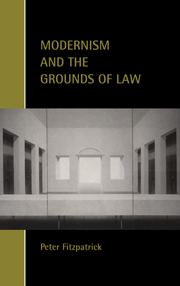5 - Imperialism
Published online by Cambridge University Press: 05 July 2014
Summary
‘I will be exalted among the heathen,
I will be exalted in the earth.’
(Psalms 46: 10)THE IMPERIAL NATION
Irony must then accompany those perennial tales of the end of nation, and the end of that ‘society’ of which nation is the paradigm. Nation is always about to be dissolved in one direction by atavistic division or by the internationalization of economic and other forces in the other. Indeed, nation is always being dissolved by such things. That rarity of complete dissolution can even occur. However, that which in its alterity challenges nation is also and always constituent of it. Nation is the particular nation of a confined territory, of blood and soil, but nation cannot ‘be’ only in this standard perception, this easy evaluation of it, for it is also an extraversion and as such oriented towards the universal. Yet, no matter how confident its universal arrogation, nation cannot ‘be’ unless it is particularly instantiated. In-between its particular and universal registers, nation configures in a large variety of densities and forms ranging from the singular nation to the most extensive comity or concert of nations, to persist for a little longer with nineteenth-century terminology. Imperialism is a carrier of such configuring. In this chapter, then, law is taken into its imperial reaches, not just to continue the story but also to refine a story already told, and to do so by showing how occidental law is imperial ‘in itself’ and not only in some remote or passing application of it in the colonies, ‘out there’.
- Type
- Chapter
- Information
- Modernism and the Grounds of Law , pp. 146 - 182Publisher: Cambridge University PressPrint publication year: 2001

